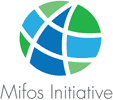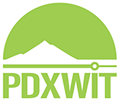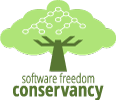AI Enhanced sessions
AI is an ever-growing force transforming how we see, understand, and interact with the world around us. Machine learning, deep learning, and natural language processing are no longer just found in the world of research and academia . They're making significant changes to building the software of today.
1:30pm–5:00pm Monday, July 15, 2019
 Justina Petraityte (Rasa)
Justina Petraityte (Rasa)
Average rating:





(4.25, 16 ratings)
Join Justina Petraityte to get hands-on experience developing intelligent AI assistants based entirely on machine learning and using only the open source tools Rasa NLU and Rasa Core. Along the way, you'll learn the fundamentals of conversational AI and best practices for developing AI assistants that scale and learn from real conversational data.
Read more.
1:30pm–5:00pm Monday, July 15, 2019


 Paris Buttfield-Addison (Secret Lab),
Mars Geldard (University of Tasmania),
Tim Nugent (Lonely Coffee)
Paris Buttfield-Addison (Secret Lab),
Mars Geldard (University of Tasmania),
Tim Nugent (Lonely Coffee)
Average rating:





(3.80, 20 ratings)
Games are wonderful contained problem spaces, making them great places to explore AI—even if you’re not a game developer. Paris Buttfield-Addison, Mars Geldard, and Tim Nugent teach you how to solve AI and ML problems using the Unity game engine and Google's TensorFlow for Python to train, explore, and manipulate intelligent agents that learn.
Read more.
9:00am–12:30pm Tuesday, July 16, 2019
 Grishma Jena (IBM)
Grishma Jena (IBM)
Average rating:





(3.64, 14 ratings)
With the advent of voice-based assistants and chatbots in our homes, our phones, and our computers, businesses, stakeholders, and developers want to learn about language processing. Grishma Jena introduces you to natural language processing (NLP) using Python. You'll start off with textual data and learn how to process it to derive useful insights that can be used in real-world applications.
Read more.
1:30pm–5:00pm Tuesday, July 16, 2019
Average rating:





(1.80, 5 ratings)
Given the growing demand for fairness, accountability, and transparency from machine learning (ML) systems, Animesh Singh, Svetlana Levitan, and Tommy Li demonstrate how to build an ML pipeline that's open, secure, and fair and that fully integrates into the AI lifecycle, using open source tools like AI Fairness 360 (AIF360) and Adversarial Robustness Toolbox (ART), among others.
Read more.
1:30pm–5:00pm Tuesday, July 16, 2019
 Dan Anghel (Google)
Dan Anghel (Google)
Average rating:





(4.50, 6 ratings)
The Kubeflow project is dedicated to making deployments of machine learning (ML) workflows on Kubernetes simple, portable, and scalable. Dan Anghel gives you on a hands-on introduction to Kubeflow and Kubeflow Pipelines for ML, both from the command line and from a notebook.
Read more.
11:00am–11:40am Wednesday, July 17, 2019
 Sara Robinson (Google)
Sara Robinson (Google)
Average rating:





(4.50, 14 ratings)
Do you want to build a machine learning model but aren't sure where to start? Sara Robinson demonstrates how to train and serve the model on Google Cloud Platform, starting with an empty notebook and ending with a simple neural network, coded from start to finish.
Read more.
11:50am–12:30pm Wednesday, July 17, 2019
 Maureen McElaney (IBM)
Maureen McElaney (IBM)
Average rating:





(4.73, 11 ratings)
With increasing regularity we see stories in the news about machine learning algorithms causing real-world harm to people's lives and livelihoods. Maureen McElaney examines how bias can take root in machine learning algorithms and ways to overcome it.
Read more.
1:45pm–2:25pm Wednesday, July 17, 2019
Average rating:





(3.20, 5 ratings)
Data science, machine learning, and artificial intelligence have exploded in popularity in the last five years, but the nagging question of how to put models into production remains. Holden Karau and Trevor Grant demonstrate how to build a machine learning model and set up serving across clouds with Kubeflow.
Read more.
2:35pm–3:15pm Wednesday, July 17, 2019
 Francesc Campoy (Dgraph)
Francesc Campoy (Dgraph)
Average rating:





(4.83, 12 ratings)
Machine learning (ML) has revolutionized how we drive, make decisions, and even communicate with each other and our computers, but the way we code hasn't significantly changed since the seventies. Francesc Campoy explains why it's time to make that change.
Read more.
4:15pm–4:55pm Wednesday, July 17, 2019
 Ellen Korbes (Garden)
Ellen Korbes (Garden)
Average rating:





(4.38, 13 ratings)
Studying neural networks is a surefire way to end up fighting more math than you can shake a stick at. Wish you could learn about the likes of gradient descent and backpropagation in a language you actually understand—like Go? Then this one is for you. Join Ellen Korbes to learn neural networks with code, not math, and algorithms, not logarithms.
Read more.
5:05pm–5:45pm Wednesday, July 17, 2019
 Alasdair Allan (Babilim Light Industries)
Alasdair Allan (Babilim Light Industries)
Average rating:





(4.80, 5 ratings)
The future of machine learning is on the edge and on small, embedded devices that can run for a year or more on a single coin-cell battery. Alasdair Allan dives deep into how using deep learning can be very energy efficient and allows you to make sense of sensor data in real time.
Read more.
11:00am–11:40am Thursday, July 18, 2019
 Julien Simon (AWS)
Julien Simon (AWS)
Average rating:





(5.00, 2 ratings)
Real-life ML workloads require more than training and predicting: data often needs to be preprocessed and postprocessed. Developers and data scientists have to train and deploy a sequence of algorithms that collaborate in delivering predictions from raw data. Julien Simon outlines how to build machine learning inference pipelines using open source libraries and how to scale them on AWS.
Read more.
11:50am–12:30pm Thursday, July 18, 2019
 Angie Jones (Applitools)
Angie Jones (Applitools)
Average rating:





(4.57, 7 ratings)
AI is being employed in just about all walks of life—from virtual assistants to self-driving cars. Angie Jones details the importance of verifying the ever-growing applications of machine learning and explains how to overcome the challenges involved, telling an engaging tale about testing today's cutting-edge, innovative applications and ensuring that they actually work the way we intend them to.
Read more.
1:45pm–2:25pm Thursday, July 18, 2019
 Sam Charrington (This Week in Machine Learning & AI)
Sam Charrington (This Week in Machine Learning & AI)
Average rating:





(3.67, 3 ratings)
With early ML proof of concepts (POCs) beginning to mature, enterprises are starting to ask how to scale and industrialize ML to meet demand. Building and deploying ML models at scale requires efficient platform technologies for data, experiment, and model management. Sam Charrington outlines key platform requirements and the open source technologies that address them.
Read more.
2:35pm–3:15pm Thursday, July 18, 2019
 Chris Thalinger (Twitter)
Chris Thalinger (Twitter)
Average rating:





(4.60, 5 ratings)
Chris Thalinger walks you through how Twitter uses its machine learning framework Autotune to tune Graal inlining parameters and details the performance improvement Twitter showed after autotuning Graal.
Read more.
4:15pm–4:55pm Thursday, July 18, 2019
 Anais Dotis (InfluxData)
Anais Dotis (InfluxData)
Average rating:





(4.67, 3 ratings)
People are eager to use ML in anomaly-detection solutions, but it doesn't always make sense. Using statistical methods to detect one-off peaks in time series data is effective and efficient; however, statistical methods fail with contextual or collective anomalies. Anais Dotis-Georgiou explains how to use k-means for time series anomaly detection and when it makes sense to use machine learning.
Read more.
5:05pm–5:45pm Thursday, July 18, 2019
 Tania Allard (Microsoft)
Tania Allard (Microsoft)
Average rating:





(5.00, 2 ratings)
ML in production is different than ML in an R&D environment. Tania Allard dives deep into a number of techniques to test your ML quality and decay in your R&D and production environments appropriately. You'll see examples of issues commonly encountered in the ML area and how to test and monitor your data, model development, and infrastructure.
Read more.
Premier Diamond Sponsor
Diamond Sponsors
Platinum Sponsor
Gold Sponsors
Silver Sponsors
Supporting Sponsors
Premier Exhibitors
Exhibitors
Innovators
Non-Profit Exhibitors
Diversity and Inclusion Sponsors
Sponsorship Opportunities
For exhibition and sponsorship opportunities, email oscon@oreilly.com
Partner Opportunities
For information on trade opportunities with O'Reilly conferences, email partners@oreilly.com
Contact Us
View a complete list of OSCON contacts
©2019, O'Reilly Media, Inc. • (800) 889-8969 or (707) 827-7019 • Monday-Friday 7:30am-5pm PT • All trademarks and registered trademarks appearing on oreilly.com are the property of their respective owners. • confreg@oreilly.com


































